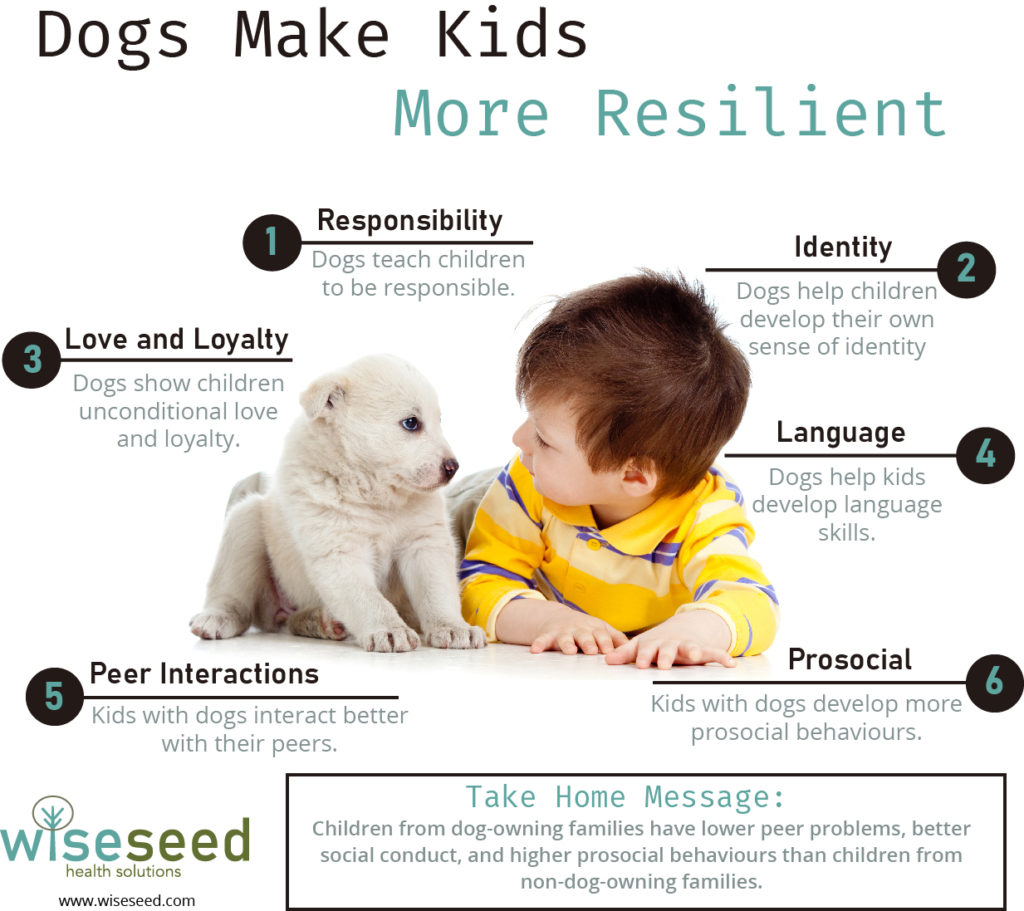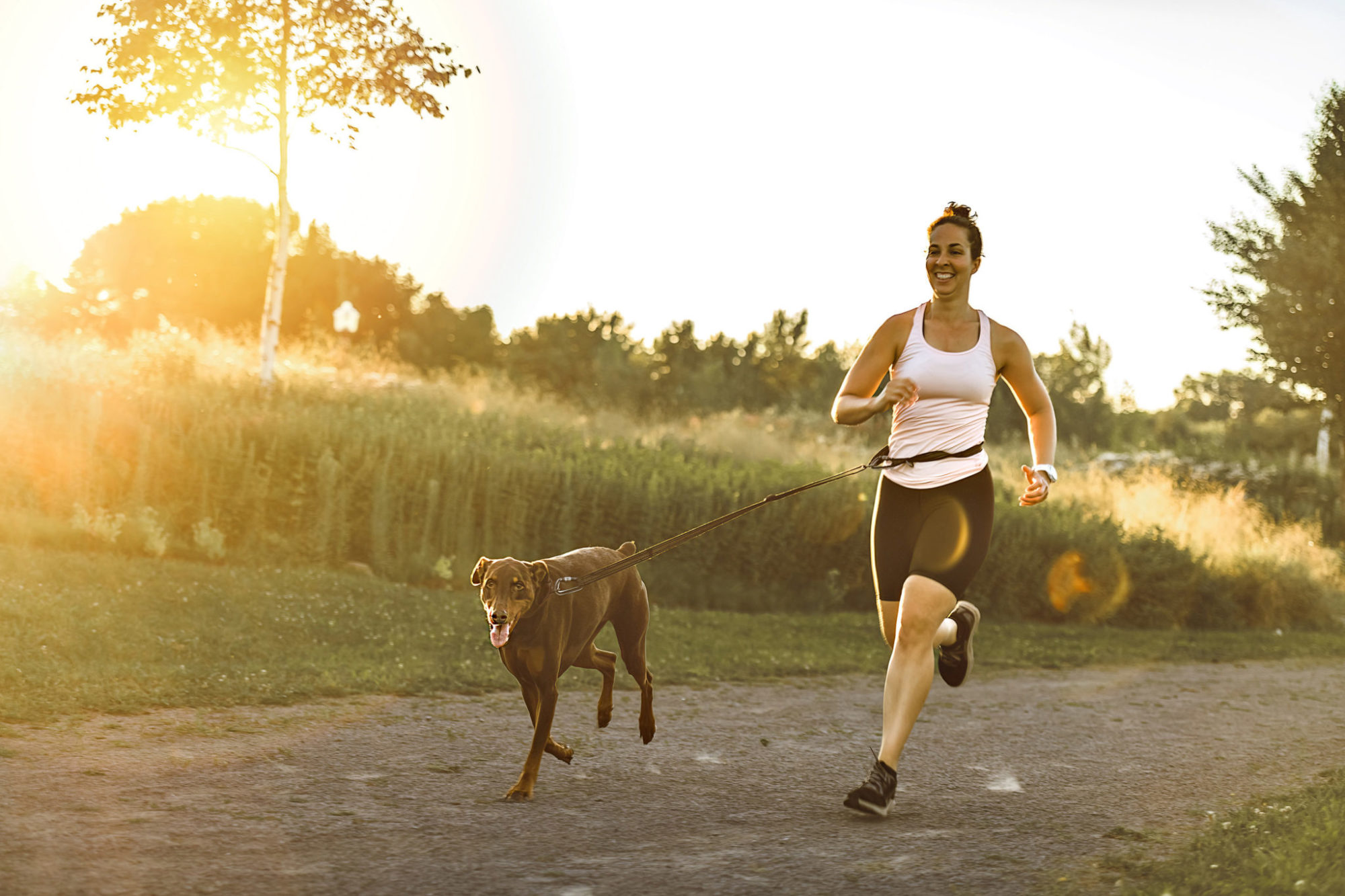Dogs Make Kids More Resilient

Dogs are a big part of our lives here at Wise Seed, so it was great to discover some new research demonstrating the positive role dogs can play in the social and emotional development of children aged 2-5 years.
There is already a substantial evidence base highlighting the benefits of dog ownership for children (1). For example, dogs help children learn responsibility, develop a sense of identity, provide unconditional love and loyalty, and assist with children’s language development (1).
What They Found
In this new study, the researchers further discovered that children (aged 2-5 years) from dog-owning families have lower peer problems and conduct problems, and higher prosocial behaviours than children from non-dog-owning families.
Further, children who had higher levels of interaction with their dog (including walking and playing with them) also had more developed prosocial behaviours (1). This is a critical consideration, in that the development of prosocial behaviour in early childhood is a strong indicator of future academic and social success (2), which is something that we want for all humans.
How to Apply this Approach for Your Family
Although these results provide highly compelling evidence for introducing a dog into your family, you must carefully consider your circumstances before doing so. To gain the benefits cited in the study, you will need to:
1. Be able to facilitate time for regular dog walking with your child.
2.Have a space for your child and dog to engage in safe play.
3. Possess the resources to support your dog in a positive way that enables them to flourish throughout their life.
4. Commit to responsible pet ownership – not just for a couple of years, but for the full life of your animal companion.
In summary, while the decision to own a dog is a huge serious lifestyle commitment, the evidence strongly suggests that owning a dog makes young kids more resilient. Our conclusion, totally worth it!
We thank the authors for their research into the benefits of dogs in the social and emotional development of children.

References
1. Warren et al. The Relationship between dog ownership, dog play, family dog walking, and pre-schooler social-emotional development: findings from the PLAYCE observational study. Pediatr Res (2020). https://doi.org/10.1038/s41390-020-1007-2
2. Panepinto, J. Nine Ways for Parents to Promote Prosocial Behaviour in Early Childhood. PsychCentral. https://psychcentral.com/blog/9-ways-for-parents-to-promote-prosocial-behavior-in-early-childhood/ (accessed 13 November 2020).

Ten Minutes is All You Need
Research has shown that ten minutes of moderate-to-vigorous exercise performed each day is enough to significantly reduce your risk of early death.

Psychological Resilience in the Pandemic Age
It’s the combination of physical, psychological and spiritual practice that maximises your resilience during the pandemic age.





